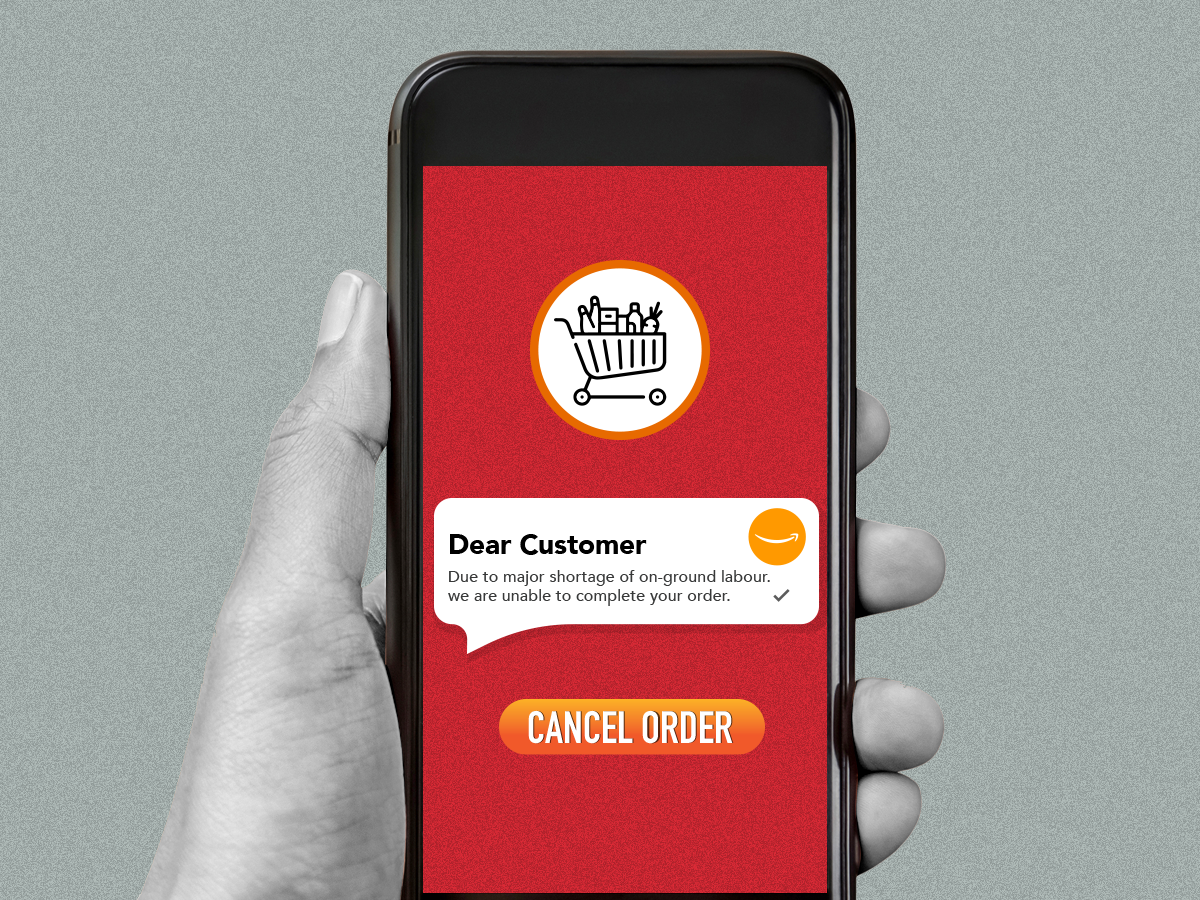
Faced with delays or cancellation of orders of essential items, customers have taken to social media to criticize Amazon India in the past one week, after India imposed a 21-day nationwide lockdown to counter the Covid-19 virus outbreak.
The essentials, such as staples, fast-moving consumer goods and other household items, were ordered through its Fresh and Pantry services, and the company typically delivers these within two days at pre-set delivery slots.
However, Amazon India has been unable to fulfil orders due to a combination of large order backlogs and lack of on-ground workers, multiple people in the know of the matter told ET.
While other online retailers have continually improved their services over the past week, Amazon’s consumers have complained that it was not making much progress.
“I have pending deliveries of my orders dated March 19. When are you resuming your deliveries in Chandigarh?” a customer tweeted to Amazon India. “Why are you not delivering any essentials in Pune?” another asked.
@AmazonNews_IN @amazonIN @TelanganaCMO @TelanganaDGP @hydcitypolice It’s better for all if you’re resuming your ser… https://t.co/uvNxWUEu8e
— Hayat (@HayatTarique79) 1585653398000
“Amazon is cancelling essential healthcare items citing government is not allowing in Vizag,” said a third customer.
@amazonIN Hello when you will deliver existing orders to Vizag city ANDHRA PRADESH
— Jai Kishore (@kvareddy12) 1585578912000
@amazonIN tried placing an essentials order in Mumbai and what is this? https://t.co/SmScwPdYkO
— Sonika (@sonika_sonik) 1585716176000
For essentials ordered from third-party sellers on Amazon’s platform even prior to the lockdown, many users have pointed out that the website has been showing three-week-long delivery timelines.
“They can’t get curfew passes on the ground…and it’s difficult to get approvals too, since they are working from large warehouses where more people are needed to operate them,” said a person with knowledge of the company’s issues, who did not want to be named.
Insiders told ET that a call to follow strict guidelines to maintain safety for on-ground workers is further slowing Amazon’s measures to ramp up delivery of essentials.
Amazon has mandated guidelines on working conditions at its warehouses globally to avoid workers from contracting the infection.
“We are resuming our services including Pantry gradually, adding in more cities and pin codes as we get the necessary clearances and passes from the local authorities.. We are first serving existing orders and are accepting new orders,” an Amazon spokesperson said.
Amazon’s inability to deliver orders for essentials comes despite it cancelling and delaying orders of non-essential items. “As per government guidelines, we are currently delivering orders containing only essential products such as food, groceries, medicines and health care purchased using prepaid methods,” the company has said.
The marketplace also largely works with three sellers – Cloudtail, Appario and Amazon Retail, to service orders for groceries, consumer goods and other household items.
ET could not ascertain the level of serviceability of these three sellers and whether shortages at their end were contributing to delayed orders on Amazon.in.
Other sellers who list essential goods say that the hit to business has been massive over the last one week.
“Amazon also relies heavily on air transport, which has been stopped till April 14,” said a top seller on Amazon, adding that the company depends heavily on its large fulfillment centres across cities to route all deliveries nationally. “Further movement of inter-city trucks has also been restricted for days… Even as it’s opening up now, there is a huge backlog,” he said.
Like in India, Amazon is only fulfilling orders of essential products in its home market and has rolled out a slew of measures to deal with the spike in the number of orders people are placing.
The company has started a drive to recruit more on-ground staff and has also raised worker wages by roughly $2 per hour in the United States till the end of April.
However, in India, the company hasn’t been so proactive, with its plan to roll out incentives to get workers to come back being delayed and plans to hire new on-ground staff not being as robust as needed.
Leave a Reply